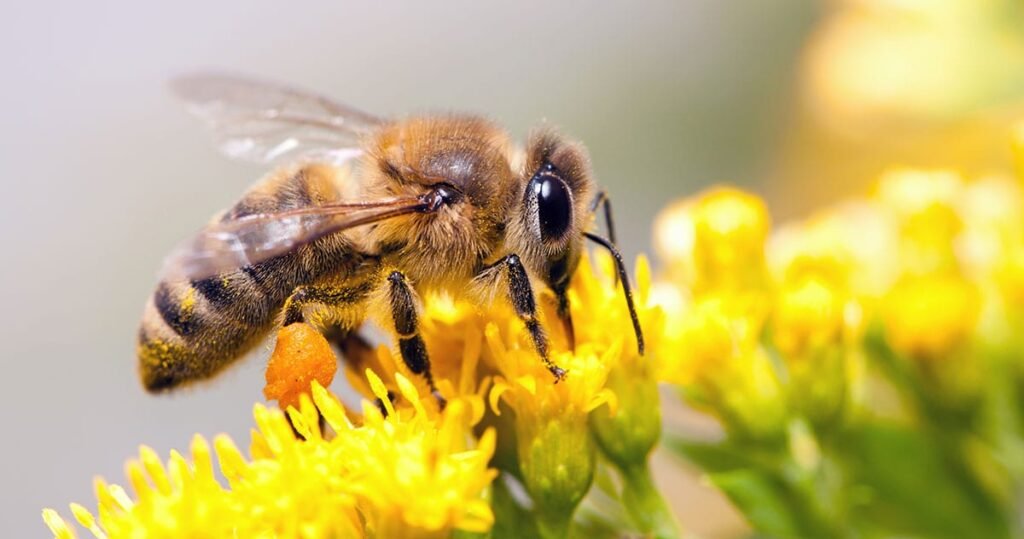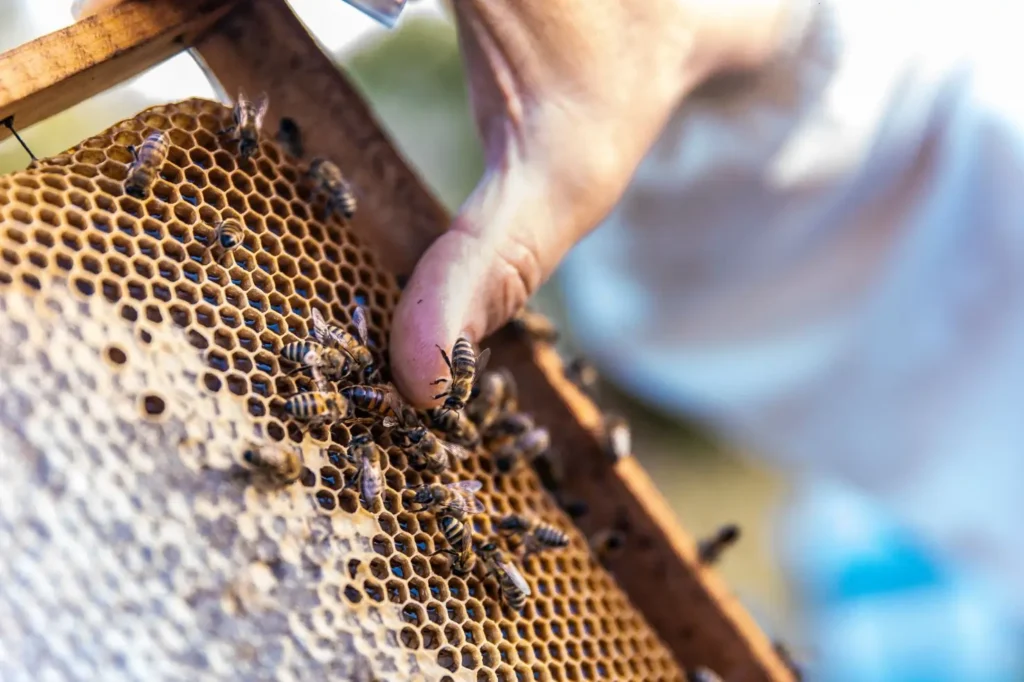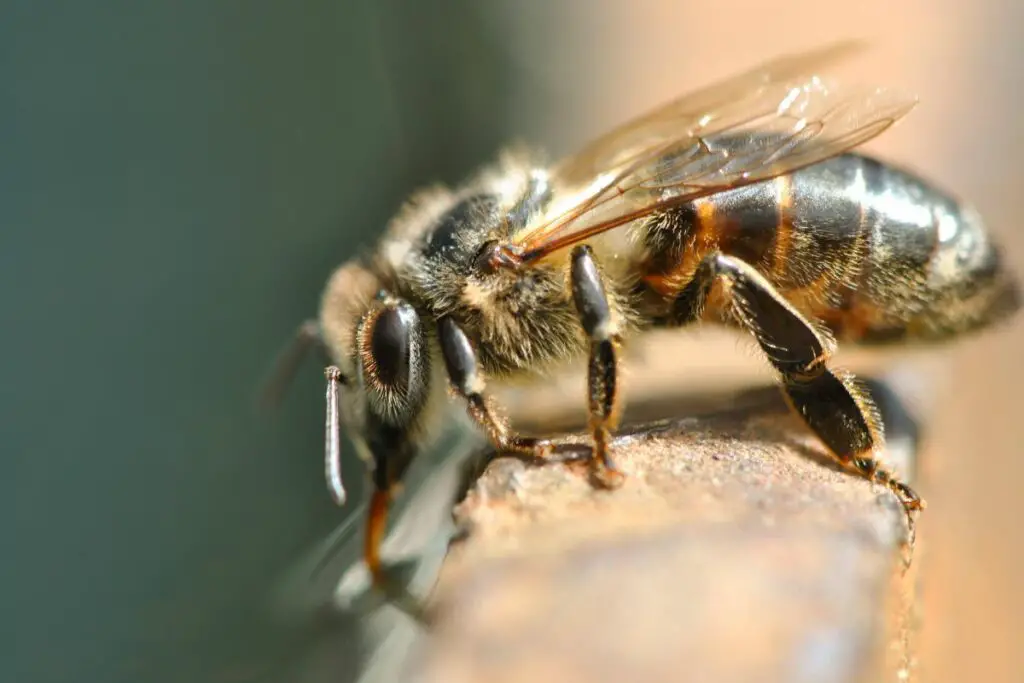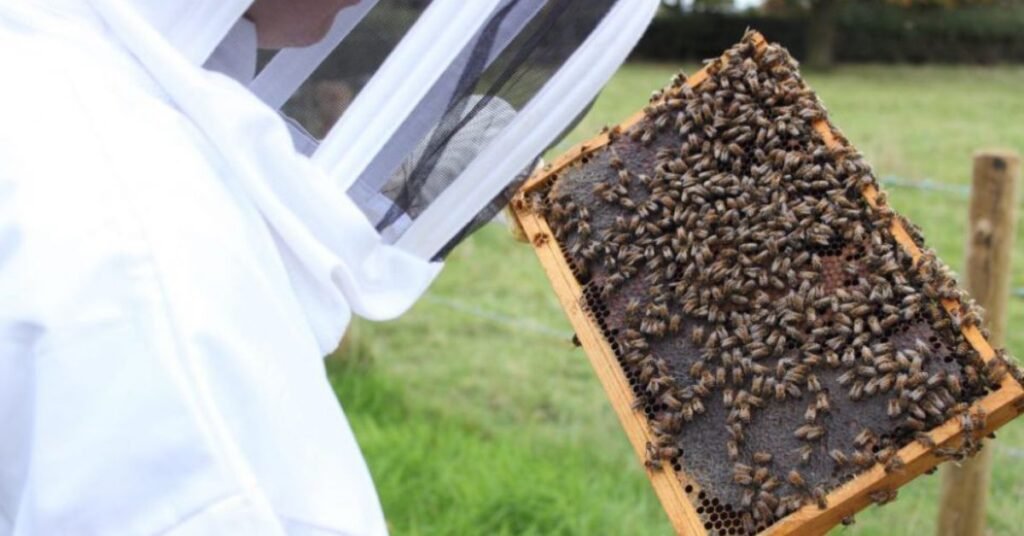Honey bees play a crucial role in our ecosystem. As active pollinators, they help in the growth of flowers, fruits, and vegetables, making them indispensable for a healthy environment. However, when they invade your home or property, it’s essential to manage them safely without causing harm to these beneficial insects. This article aims to provide a comprehensive guide on how to control honey bees effectively and safely, ensuring both human safety and bee welfare.

Why Honey Bees Need Proper Control
Honey bees are generally non-aggressive and only sting when provoked. However, when their colonies establish themselves in areas like attics, chimneys, or wall voids, they can become defensive. A permanent colony close to residential areas poses risks like bee stings, which can be painful, and for those allergic to bee venom, it can be life-threatening.
If you notice bee swarms around your home, it’s essential to act promptly. Effective honey bee control services can help you manage the situation without causing harm to the bees, as they can be relocated by a local beekeeper or pest control professional.
Best Practices for Honey Bee Control
Honey bees play an essential role in our ecosystem, supporting food production and biodiversity. However, when bee populations establish nests in unwanted or unsafe places, they can pose challenges for homeowners, businesses, and public spaces. Effective honey bee control involves balancing the need for safety while preserving these valuable pollinators. This article explores best practices in honey bee management, from safe relocation to humane deterrence methods that minimize harm to bee populations and prioritize environmental health.

1. Identify the Source of the Infestation
Before attempting any control methods, locate the source of the bee activity. Bees usually build nests in sheltered areas like trees, attics, or wall voids. To identify their nesting site:
- Observe bee activity during daylight hours to trace their flight path.
- Listen for buzzing sounds in the walls, which indicate a hidden nest.
- Tap the wall lightly and wait for a response buzz from the bees.
2. Avoid DIY Bee Removal
Although it might be tempting to handle a bee problem yourself, attempting bee removal services without proper knowledge can be dangerous. Bees may become aggressive, increasing the risk of stings. It’s best to contact professional honey bee control services that have the necessary equipment and expertise.
3. Timing Matters
The best time to eliminate bee swarms is in the late winter or early spring, as the bee population is smaller and easier to manage. The ideal time of day for bee removal is late afternoon, when bees are generally less active and more likely to be inside the hive.
4. Proper Use of Insecticides
If professional removal is not an option and insecticide treatment is needed:
- Apply the insecticide directly to the nest, preferably through an external wall opening.
- Do not seal the entry hole immediately after applying insecticide, as this could drive agitated bees into your living space.
- Remove the honeycomb after treatment to prevent attracting other pests like wax moths, carpet beetles, and scavenger insects.
5. Preventing Future Bee Infestations
Once the bee colony has been removed, take preventive measures to avoid re-infestation:
- Seal cracks and gaps in walls, roofs, and eaves.
- Install screens over chimneys, vents, and other potential entry points.
- Regularly inspect your property for any signs of bee activity, especially during spring when bees are most likely to swarm.
The Role of Professional Honey Bee Control Services
Engaging a professional bee removal service is the most effective and safest way to manage bee infestations. Experienced pest control technicians not only remove the bees but also ensure that the nest is disposed of properly. They use specialized equipment to handle bee colonies safely, minimizing the risk of stings and structural damage to your property.

Why Choose Professional Services?
- Safety First: Professionals have the right tools and protective gear to handle bee nests safely.
- Experience: Trained experts can determine the best method for removing bees based on the nest’s location and size.
- Eco-Friendly: Many honey bee control services aim to relocate the bees rather than exterminate them, preserving the local ecosystem.
- Complete Removal: They ensure that the entire colony, including the queen bee, is removed to prevent bees from returning.
Frequently Asked Questions (FAQs)
1. Are honey bees dangerous?
Honey bees are generally non-aggressive and only sting when threatened. However, they can become defensive if their nest is disturbed. People allergic to bee stings should avoid any contact with bees, as a sting could trigger severe reactions.
2. Can I remove a bee nest by myself?
It’s not recommended to remove a bee nest by yourself. Bees can become defensive and sting if they feel threatened. Professional honey bee control services have the right tools and expertise to handle bee removal safely.
3. What should I do if I find a bee swarm on my property?
If you notice a bee swarm, maintain a safe distance and avoid disturbing it. Contact a professional bee removal service to handle the situation.
4. Can honey bee control be eco-friendly?
Yes, many honey bee control services prioritize the relocation of bee colonies to protect the environment. Beekeepers often work alongside pest control professionals to ensure the safe transfer of bees to more suitable locations.
5. How can I prevent bees from coming back?
Seal potential entry points, install mesh screens over vents, and repair any cracks in walls and roofs. Regular inspections and preventive measures are key to keeping bees away.
Conclusion
Honey bees are beneficial to our environment, but when they establish colonies close to human dwellings, they can pose safety risks. It’s essential to approach honey bee control responsibly, ensuring minimal harm to the bees and maximum safety for humans. Always rely on professional honey bee control services for effective and humane removal of bee colonies. Taking preventive measures afterward can help keep your property free of bee infestations in the future.
For safe and effective solutions, consider reaching out to Al-Manama Honey Bee Control Services for expert assistance.



